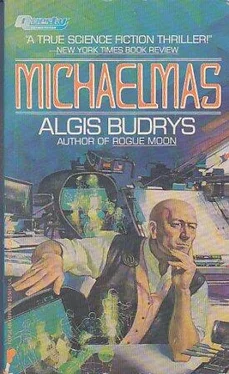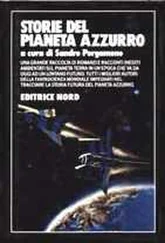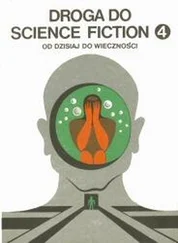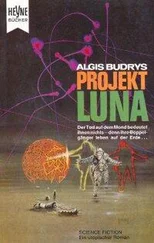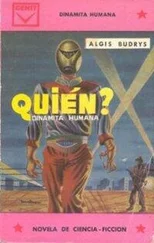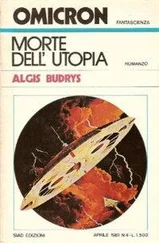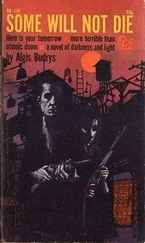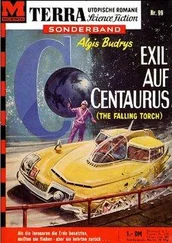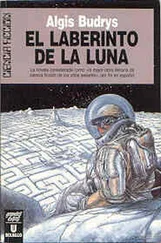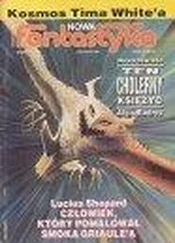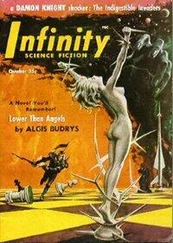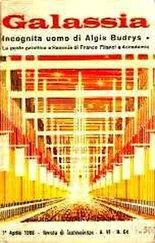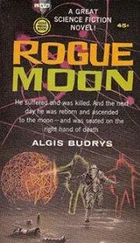Michaelmas stood shaking his head. “Do you suppose I should do the same?”
“O King! Live forever!” Domino said drily. “Here comes the bellman.”
When the elevator reached the lobby, Michaelmas closed his eyes for a moment. Then he opened them and smiled his way out into the world.
He sat in the car with his head down. Domino said to him : “Peking has just done something encouraging.”
“What might that be?”
“It was proposed to the Central Committee by Member Chiang that they form an ad hoc consortium of Asian and African nations, along the lines of the old Third World concept. The object would be to vote the UN into directing UNAC to restructure the flight crew. Thousandman Shih would be shifted from command to the close-approach module to membership in an overall command committee consisting of himself plus Norwood and Papashvilly. This would be presented to UNAC as the most diplomatic way out of its dilemma.”
“Oh my God.”
“The proposal was voted down. Chairman .Sing pointed out what happened the last time the Third World gambit was attempted. He also questioned Member Chiang on what he thought Thousandman Shih should do in the event Colonel Norwood proved not up to his duties in flight. Should Shih join with Major Papashvilly in removing the American from the command committee? How should the news back to earth be worded? Should Shih sign the message above or under Papashvilly? Did not Member Chiang, on reconsideration, feel things were best left for the present to mend themselves as they might?”
Michaelmas grinned. Sing was young for his post, but he was a hard case. When Mao died and left that famous administrative mess, it had created a good school for shrewdness, even if it had been slow in producing results. A day would come when Sing was older; that ought to be allowed for. But later. Later. For the time being, China represented a bright spot on his map. If Sing felt obliged by tradition to rub a little against his borders with India and the USSR, and counterpoise Taiwan’s and Hong Kong’s industry to Japan’s, well, it was equally true that all continents maintained a certain level of volcanic activity as they slid their leading edges along the earth’s mantle. Nevertheless, cities were built and flourished upon those coasts.
He was feeling halfway pleased by all that when Domino said: “Mr Michaelmas, something bad has happened.”
He raised his head abruptly and looked out beyond the windows of the ear. They were proceeding uneventfully toward the airport.
“What?”
“Here is a short feature that’s just been released by the syndication department of EVM.”
Michaelmas rubbed his face and the back of his neck; the heel of his hand massaged surreptitiously behind his right ear. “Proceed,” he said unwillingly, and Domino went to the audio track of a canned topical vignette for sale to stations that lacked feature departments of their own.
“Ask the World,” said a smooth, featureless, voice-over voice. “Today’s viewer question comes from Madame Hertha Wieth of Ulm. She asks: ”What are the major character differences between astronauts and cosmonauts?“ For her provocative and interesting question, Frau Wieth, a mother of four lovely children and the devoted wife of Stationary Engineer Augustus Friedrich Wieth, will receive a complimentary shopping discount card, good for one full calendar year, from the Stroessel Department Stores, serving Ulm and nearby communities honorably for the past twenty years. Stroessel’s invites the world’s custom. And now, for the reply to our viewer’s question, Ask the World turns to Professor Henri Jacquard of the Ecole Psychologique, Marseilles. Professor Jacquard:”
“Merci. Madame Wieth’s question implies a penetrating observation. There are significant psychological differences between the space fliers of the United States of North America and those of the Union of Soviet Socialist Republics. For example, let us compare Colonel Walter Norwood to Major Pavel Papashvilly.”
Domino said : “Now this is over stock portraits of the two. Then it goes to documentary footage of Norwood walking to church, Norwood addressing a college graduating class, Norwood riding a tour bicycle through a park, Papashvilly ski racing, Papashvilly diving from a high tower, Papashvilly standing in a hospital and talking enthusiastically to a group of amputees, Papashvilly flying a single-place jet, Papashvilly driving at a sports-car track. Bridgehampton; that’s some of your footage, there.”
“Well, at least we’re making money. Go on.”
“Colonel Norwood,” Professor Jacquard said, like most other American astronauts, is a stable person of impeccable middle-class background. He is essentially a youthful professional engineer whose superior physical reflexes have directed him to take active roles as a participant in carefully planned and thoughtfully structured engineering studies. He is an energetic but prudent researcher, inclined by temperament as well as extensive training to proceed always one step at a time. His recent mishap was clearly no fault of his own, and a thousand-to-one misfortune. His invariable technique is to follow a reliable plan which he is always ready to revise appropriately upon discovery of new facts and after sufficient consultation with authoritative superiors. In sum, Colonel Norwood, very like many of his “good buddies” fellow astronauts, is a startlingly European man, belying any provincial notion that North American males are all thinly disguised cowboys.
“On the other side of the coin is the cosmonaut programme of the Soviet Union. In the days of independent flight, Soviet space efforts were marked by unexpected changes of schedule, by significant fast-priority overhauls and in some cases major engineering transformations of supposedly finalized equipment. The Soviet Union remains the only nation which has suffered fatalities as a direct result of flight in space. Some of these were ascribable to equipment failure. Other unplanned mission events, if one is to judge from numerous incidents of exuberant behaviour while in flight, may well be laid to a certain boisterousness, which is not to say recklessness, on the part of cosmonauts over the years. There are those who say that taken as a whole, the Soviet cosmonautics programme was characteristically uncertain of its engineering and insufficiently strict in selecting flight personnel. It is of course an oversimplification to ascribe such qualities to Major Papashvilly simply because he comes to his position as a result of nomination by the Soviet cosmonaut command. But it could not be denied that the Soviet Union would naturally bring forward the individual who seemed most fitted to their standards.”
“Elan,” Professor Jacquard Summed up, “is often a praiseworthy quality. In fact, there are times when nothing else will suffice to gain the day.”
Domino said: “This is over shots now of horsemen jumping pasture fences in the Georgian mountains.”
“From his racial background, Major Papashvilly finds himself hereditarily equipped to concentrate all his powers on a single do-or-die moment,” Jacquard said. “Should such a moment arise, an individual of this type may very well succeed despite sober mathematical odds. One must be fair, however, and point out that individuals of Major Papashvilly’s type are frequently marked by the presence of one or more minor injuries at all times. In some cases, persons who suffer many small discomfitting accidents as a result of their life-styles are said in the educated world to have an ”accident-prone character“. I hope, Madame Wieth, that I have answered your question in a satisfactory manner.”
“Thank you, Professor Henri Jacquard, of the Ecole Psychologique, Marseilles, replying to the question by Madame Hertha Wieth, of Ulm. Tomorrow’s question on Ask the World is ”How does one recognize one’s ideal mate?“ and will be answered by Miss Giselle Montez of the American Warbirds entertainment.”
Читать дальше
